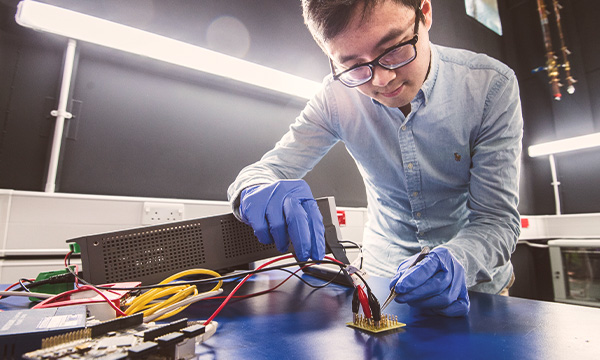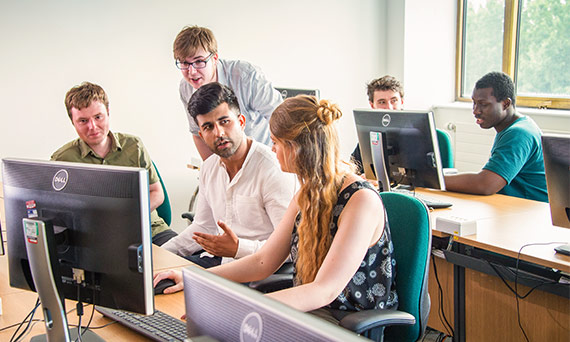Professional Experience
Many of our degrees have the option to work on projects and dissertations for external companies. We also offer industrial placements and industry specific modules.

At Lancaster, we don't just want you to pass your degree. We are dedicated to providing you with the best opportunities to begin your career.
Our undergraduate and postgraduate degrees provide excellent employment prospects. We want you to make the best start to your career.
Many of our degrees have the option to work on projects and dissertations for external companies. We also offer industrial placements and industry specific modules.

Our students and recent graduates can apply for relevant, paid work experience. Internships allow you to apply your academic knowledge in real-world situations - and get paid for it!

Our careers service offers lifetime support, help and friendly advice. Search for opportunities or explore options for further study.

After you have graduated, you will have the opportunity to continue your studies to the level of PhD. In addition, we have a number of careers resources specifically for postgraduates.

“The whole experience was incredible. The aspect that we were able to contribute to science was brilliant and gave me an idea of what I want to do in the future. Even just visiting the observatory was amazing, standing between the MAGIC 1 and 2 telescopes, their sheer size was so much larger than I expected. Although the hours were unsociable and it was freezing cold, I would do it again!”
Robbie Kaiser

Physics is an exciting subject fundamental to the development of modern society. Use of the subject range from the very pure to the very applied. A Physics degree can open up a wide range of rewarding careers in scientific research and technological development, as well as in a wide variety of other professions.






Our degree schemes emphasise the development of transferable skills. These will help you in your future life, whichever career you follow.

Many of our graduates carry on with a research degree or enter employment that directly relies on their specialist skills. Many scientists originally trained in physics are working in areas such as electronic engineering, metallurgy, geology, information technology and molecular biology.
| 55% | Engaged in further study, training or research |
| 29% | Working full-time |
| 4% | Travelling |
| 2% | Due to start work in next month |
| 10% | Other |